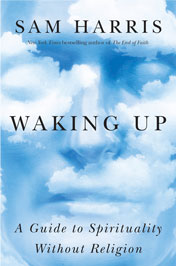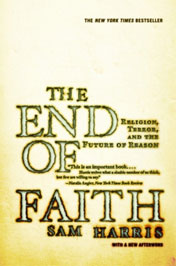
(Photo via Getty Images)
Ayaan Hirsi Ali was born in Mogadishu in 1969. The daughter of a political opponent of the Somali dictatorship, she lived in exile, moving from Saudi Arabia to Ethiopia and then to Kenya. Like 98 percent of Somali girls, Ayaan was subjected to female genital mutilation. She embraced Islam while she was growing up, but eventually began to question aspects of the faith. One day, while listening to a sermon about the many ways in which women must be obedient to their husbands, she couldn’t resist asking, “Must our husbands obey us too?”
In 1992, Ayaan was married off by her father to a distant cousin living in Canada. In order to escape this forced marriage, she fled to the Netherlands where she was granted asylum and then citizenship. In her first years in Holland she worked in factories and as a maid—but she quickly learned Dutch and was then able to study at the University of Leiden. She soon began working as a translator for Somali immigrants, where she witnessed firsthand the clash between liberal Western values and those of Islamic culture.
After earning her M.A. in political science, Ayaan began working as a researcher for the Wiardi Beckman Foundation in Amsterdam. She eventually served as an elected member of the Dutch parliament from 2003 to 2006. While in parliament, she focused on furthering the integration of non-Western immigrants into Dutch society and on defending the rights of Muslim women. She campaigned to raise awareness about violence against women, including honor killings and female genital mutilation—practices that had followed Muslim immigrants to Holland. In her three years in government, she found her voice as an advocate for an “enlightened Islam.”
In 2004, Ayaan gained international attention following the murder of Theo van Gogh, who had directed her short film, Submission, depicting the oppression of women under Islam. The assassin, a radical Muslim, left a death threat for Ayaan pinned to Van Gogh’s chest.
In 2006, Ayaan was forced to resign from parliament when the Dutch minister for immigration revoked her citizenship, arguing that she had misled the authorities at the time of her asylum application. However, the Dutch courts later reversed this decision, leading to the fall of the administration. Disillusioned with the Netherlands, Ayaan then moved to the United States.
Ayaan is a fellow with the Future of Diplomacy Project at the Belfer Center for Science and International Affairs at Harvard Kennedy School. She is also a visiting scholar at the American Enterprise Institute, currently researching the relationship between the West and Islam. Her willingness to speak out for the rights of women, along with her abandonment of the Muslim faith, continue to make her a target for violence by Islamic extremists. She lives with round-the-clock security.
In 2005, Ayaan was named one of TIME magazine’s “100 Most Influential People,” one of the Glamour Heroes, and Reader’s Digest’s European of the Year. She is the author of The Caged Virgin, Infidel, and Nomad. She is now working on Short-cut to Enlightenment, a dialogue between Mohammed, the founder of Islam, and three of her favorite Western thinkers: John Stuart Mill, Karl Popper, and Friedrich Hayek.
A few weeks ago, Ayaan and I had a long conversation about her critics and about the increasingly pernicious meme of “Islamophobia”—which our inimitable friend Christopher Hitchens once dubbed “a word created by fascists, and used by cowards, to manipulate morons.” [NOTE 5/11/14: This wonderful sentence seems to have been wrongly attributed to Hitch (who was imitable after all). I’m told these words first appeared in a tweet from Andrew Cummins. Well done, Andrew!]
The following text is an edited transcript of our conversation.




















